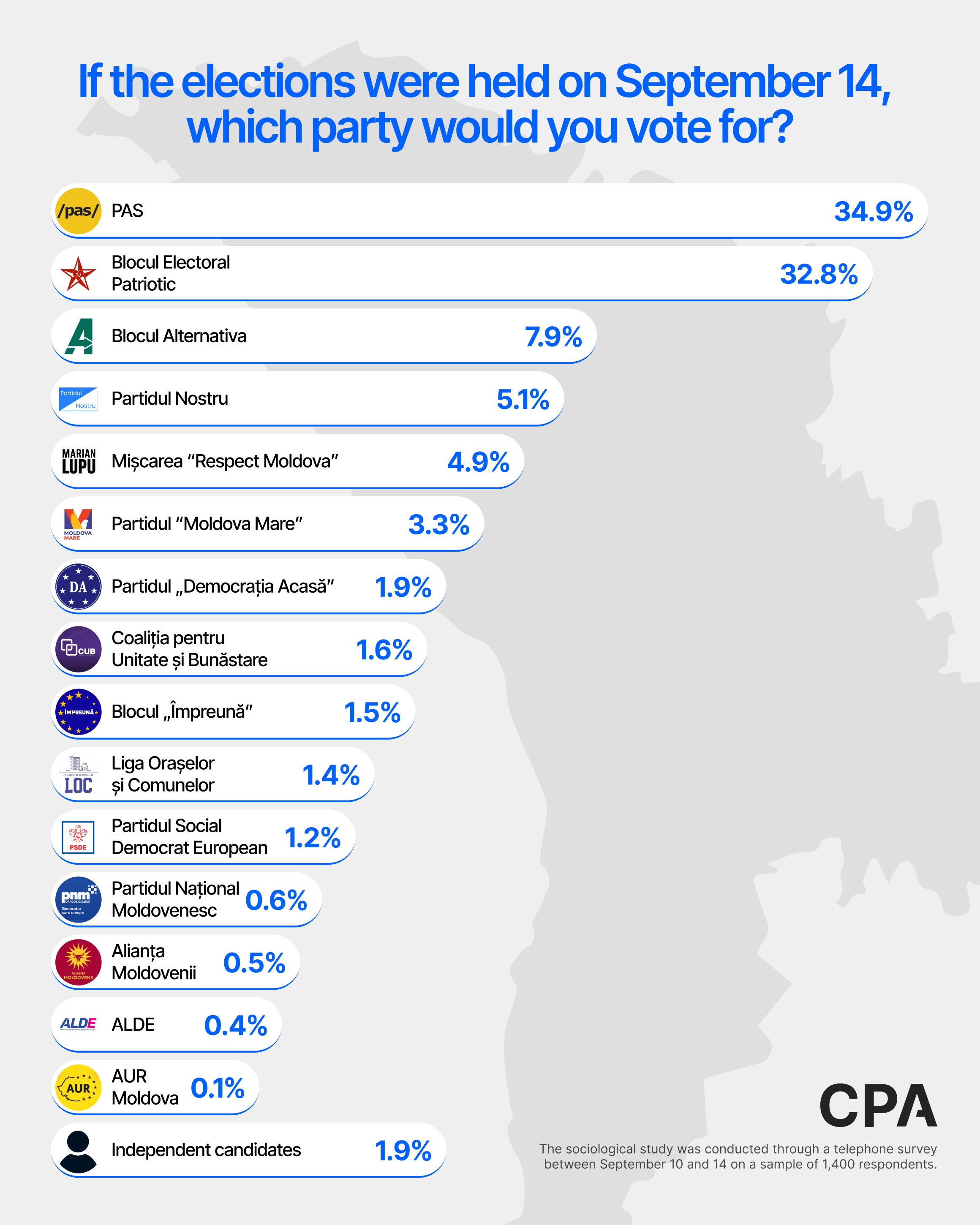Parliamentary Elections in Moldova: Shifts in Voter Preferences
Support for pro-European parties is rising, while pro-Russian parties are rapidly losing ground.
Government- and party-led pro-European political campaigns, combined with strong negative campaigning against pro-Russian parties, are yielding results in Moldova. Pro-European parties, particularly the ruling party, are gaining ground in internal, non-public sociological surveys, while parties directly or indirectly linked to the Kremlin are seeing sharper declines in ratings.
By mid-September, the picture of electoral preferences looked as follows:

Experts note that the rise of pro-European parties is driven less by the decline of pro-Russian groups and more by the steady decrease of undecided voters and those who previously told pollsters they would not support any party.
One factor behind this trend, analysts say, is the large-scale negative campaign against Blocul Alternativa, led by the capital’s mayor, Ion Ceban, and openly orchestrated by the ruling party in recent months. At the same time, the decline of Blocul Electoral Patriotic’s popularity has been linked to scandals involving its leaders, including allegations from the head of the Communist Party that the chairman of the Socialist Party, its bloc partner, accepted a bribe of €1 million and kept €160,000 for himself. Separately, Irina Vlah, a former governor of Gagauzia, an autonomous region within Moldova, was accused of having ties to Ilan Shor, who is active in Kremlin-linked structures and allegedly offered bribes for votes in support of pro-Russian parties.
Another factor has been a series of police-led campaigns aimed at preventing electoral corruption, as well as scandals sparked when hundreds of people complained on social media that they had not received promised payments from Kremlin-linked groups for participating in protests in Chisinau.
Experts predict that the share of undecided voters will decline in the final week before the elections, driven by rising anti-Kremlin sentiment in Moldova. This trend is expected to benefit not only the ruling party but also other pro-European groups that may appeal to voters dissatisfied with the government.
The sociological survey was conducted through a telephone survey between September 10 and 14 on a sample of 1,400 respondents. It did not include voters from the Transnistrian region or the diaspora. The margin of error is ±2.2%.
